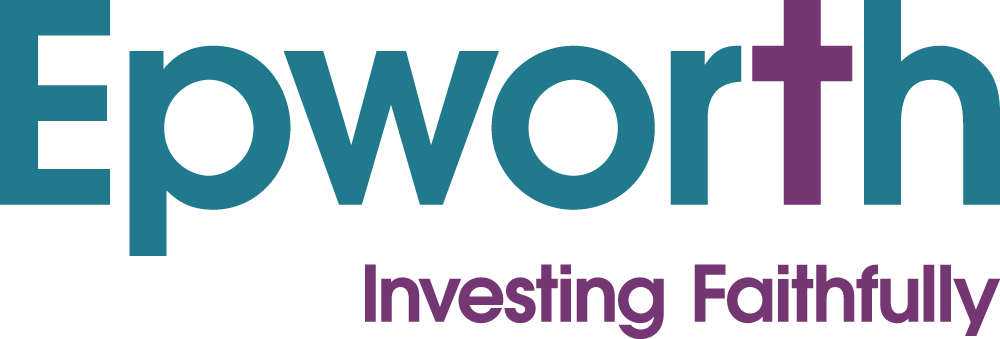LEVELS OF TOLERANCE
At Epworth, we recognise the complexity and scrutiny around ethical investment. Our aim is to be both pragmatic and transparent, while never compromising the integrity of our principles.
To achieve this, we set out clear ethical policies and define measurable levels of tolerance for exposure to activities that fall outside our ethical positions. This ensures our clients can see exactly how we apply our values in practice, with both clarity and consistency.
Importantly, Epworth does not invest in companies that exceed these tolerance levels. This ensures our clients can see exactly how we apply our values in practice, with both clarity and consistency.
The thresholds below apply to directly held companies, based on the percentage of their revenue derived from activities that are not aligned with Epworth’s ethical stance.
To explore how these policies shape your investments, speak with a member of our team.

Tolerances you can trust
| Category | Threshold | Excluded Activities |
|---|---|---|
| Zero-Tolerance Areas | <1% investee revenue | Controversial Weapons |
| Fossil Fuels Extraction and Refining | ||
| Tobacco Manufacture | ||
| Pornographic Content Production | ||
| High-Interest/Predatory Lending | ||
| Animal Testing for Cosmetic or Household Products | ||
| Fur & Exotic Skins | ||
| Low-Threshold Areas | 5% investee revenue | Strategic & Combat Weapons |
| Civilian Firearms & Ammunition | ||
| Tobacco Distribution | ||
| Pornographic Distribution | ||
| Non-medical Cannabis | ||
| Gambling | ||
| Non-compliant Breast Milk Substitutes | ||
| For Profit Incarceration | ||
| Medium-Threshold Areas | 10% investee revenue | Alcohol |
| Non-weapon Military Services |
Conduct-Based Exclusions
Regardless of revenue exposure, Epworth excludes or escalates engagement with companies:
In serious or repeated breach of international standards, including:
UN Global Compact, UN Guiding Principles on Business and Human Rights, International Labour Organisation (ILO) Conventions
Operating in high-risk jurisdictions without evidence of:
Human rights due diligence, worker protections, and transparency in supply chains
Linked to:
Widespread habitat destruction or biodiversity loss, serious pollution events or environmental regulatory breaches, consistently failing to align with the goals of the Paris Agreement, including companies with no credible climate transition plan, companies actively undermining global climate goals through lobbying or expansion, and habitual violation of relevant regulatory obligations.
Protection of Children
Epworth will not invest in companies that are knowingly involved in the exploitation, abuse, or endangerment of children. This includes, but is not limited to, the use of exploitative child labour in supply chains, the production or distribution of pornography involving or targeting minors, and the manufacture or sale of goods or services that are primarily harmful to children (for example, unsafe products or inadequate safety standards in digital, gaming and social media platforms).
Companies that have demonstrably failed to uphold international standards on children’s rights, such as those articulated in the UN Convention on the Rights of the Child and the ILO Conventions on child labour, will also be excluded.
Artificial Intelligence
Epworth will not invest in companies engaged in the development or deployment of artificial intelligence where there is inadequate governance to safeguard human rights, dignity, and safety.
Particular concern arises where firms fail to demonstrate robust oversight, transparency, and accountability for the design and use of AI systems. This includes, for example, companies that do not disclose ethical frameworks, lack independent governance structures, or neglect clear safeguards against misuse. In the absence of such governance, investment will be excluded.
Sovereign Bond Exclusions
Epworth does not invest in government debt issued by regimes identified as oppressive or systematically violating civil liberties, political rights, or anti-corruption norms.
Review and Engagement
Where thresholds are approached but not exceeded, Epworth may engage with the company to seek alignment with our ethical standards. Companies failing to respond to engagement or where concerns escalate may be excluded.
This policy is reviewed annually and updated to reflect evolving ethical insights, investment practices, and guidance from the Methodist Church in Britain, ecumenical partners and the third-sector practice.
Pooled Fund Policy
At Epworth, our unique approach to responsible investment assures clients that their assets are managed in line with clear ethical principles. While most investments are managed in-house, we sometimes draw on external expertise through pooled funds to access certain asset classes – such as infrastructure, property, or private equity – that would otherwise be difficult or inefficient to reach directly.
When using pooled funds, we apply the same ethical scrutiny as with directly held investments. We do not invest in funds that:
Focus on excluded activities (e.g. controversial weapons, adult entertainment, and gambling).
Derive 10% or more of aggregate value from activities contrary to our published tolerances.
Where indirect exposure arises, we seek to influence fund managers and always consider our ability to exit on ethical grounds.
Data Limitations and Error Policy
We rely on data from a range of third-party providers, company disclosures, and publicly available sources to assess ethical alignment. While we make every effort to ensure the accuracy and currency of our data, limitations remain. Therefore, we cannot ensure complete accuracy in every investment screen. Where errors or omissions are identified, we will act promptly to review and, where appropriate, reclassify holdings.
Our tolerances in action
| Issue | EXCLUSIONS | INCLUSIONS | |
|---|---|---|---|
| High interest (Doorstep) lending | 1% | ||
| Oil and Gas exploration, production, refining | 3% | ||
| Thermal coal exploration and production | 3% | ||
| Electricity production using fossil fuels | 30% | ||
| Conventional weapons and other armaments | 3% | ||
| Controversial weapons | 0% | ||
| Non-weapon military components | 5% |  |
|
| Elective abortion facilities / manufacturers of sole purpose abortifacients | 0% | ||
| Distribution and sale of alcohol | 10% | ||
| Production of alcohol | 1% | ||
| Distribution and sale of tobacco | 5% | ||
| Production of tobacco | 1% | ||
| Gambling | 3% | ||
| Adult entertainment | 1% |
